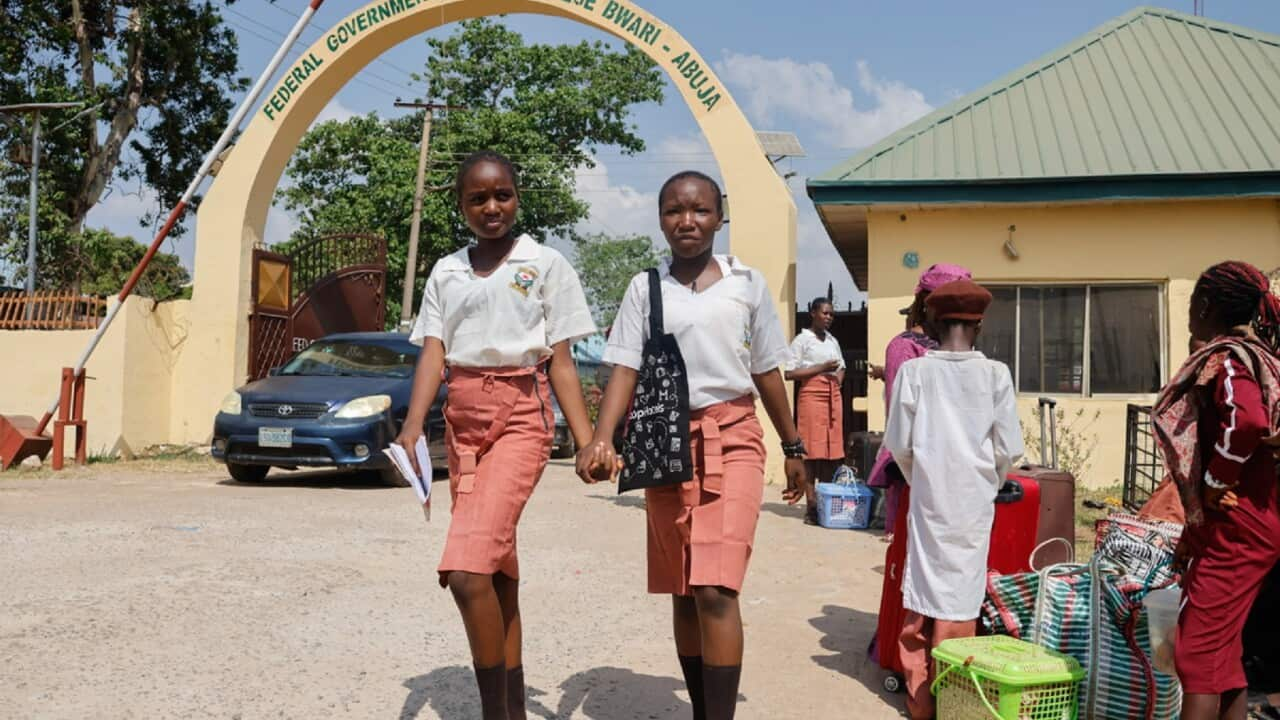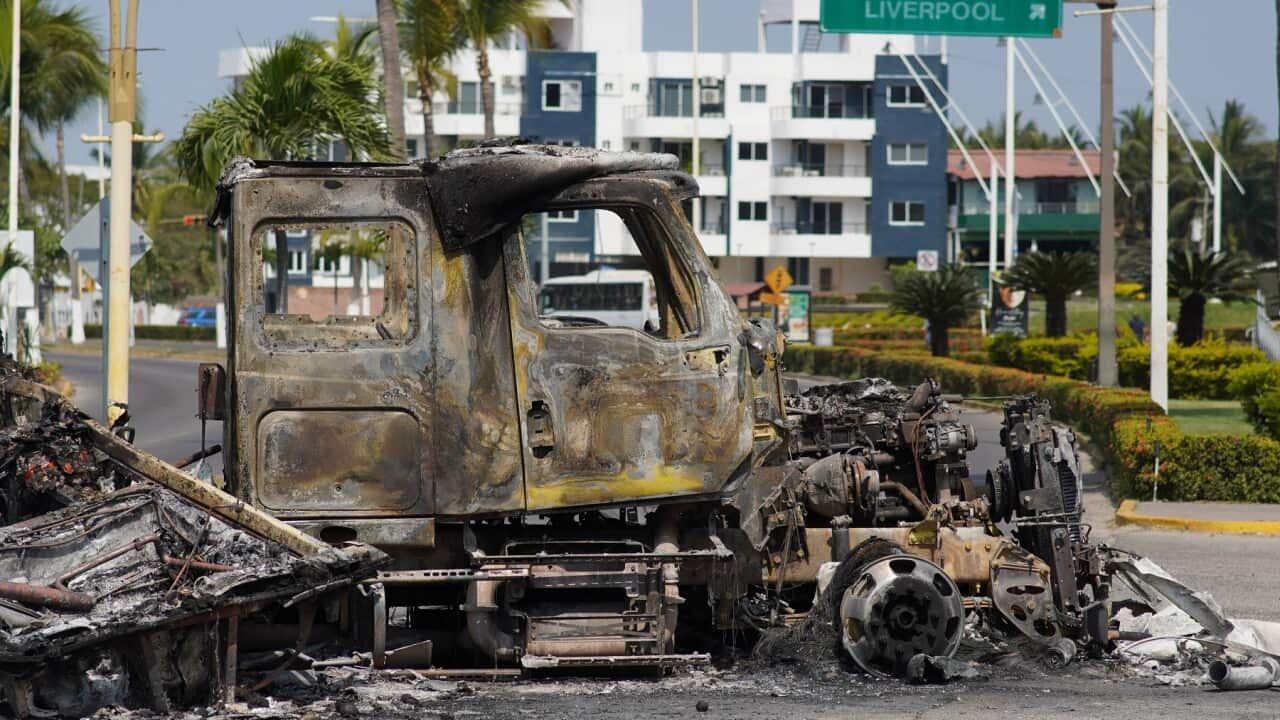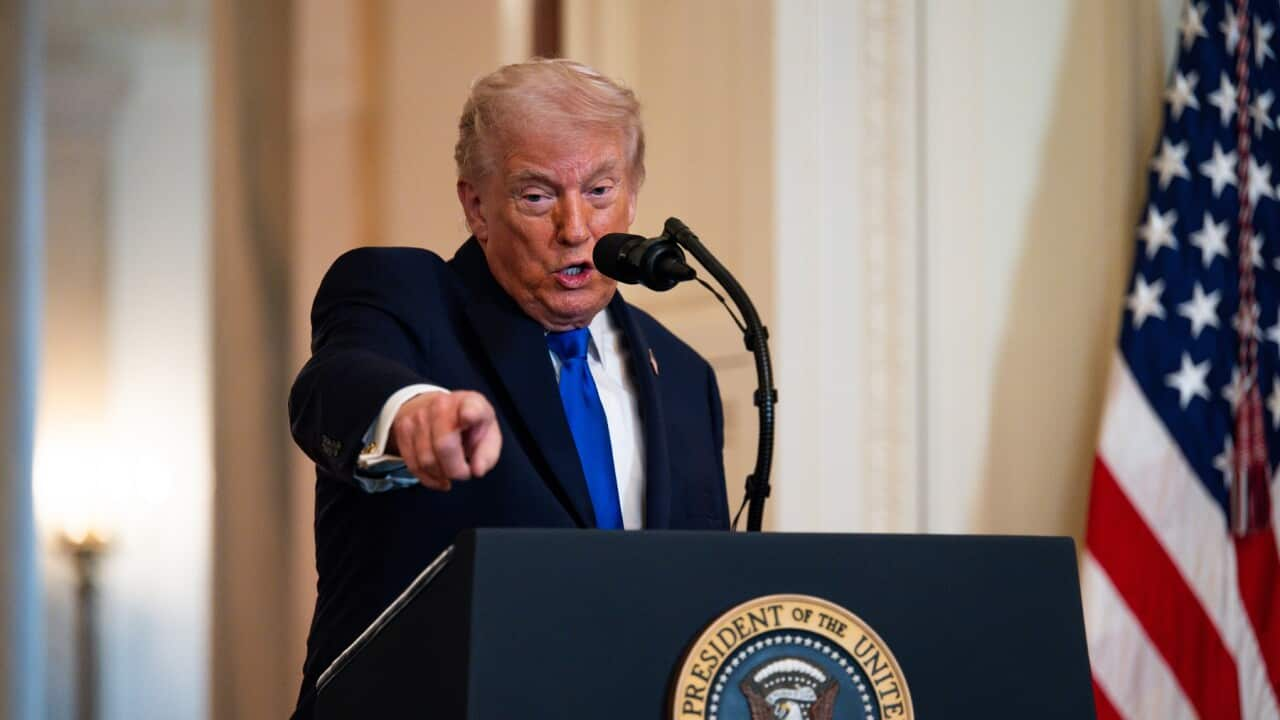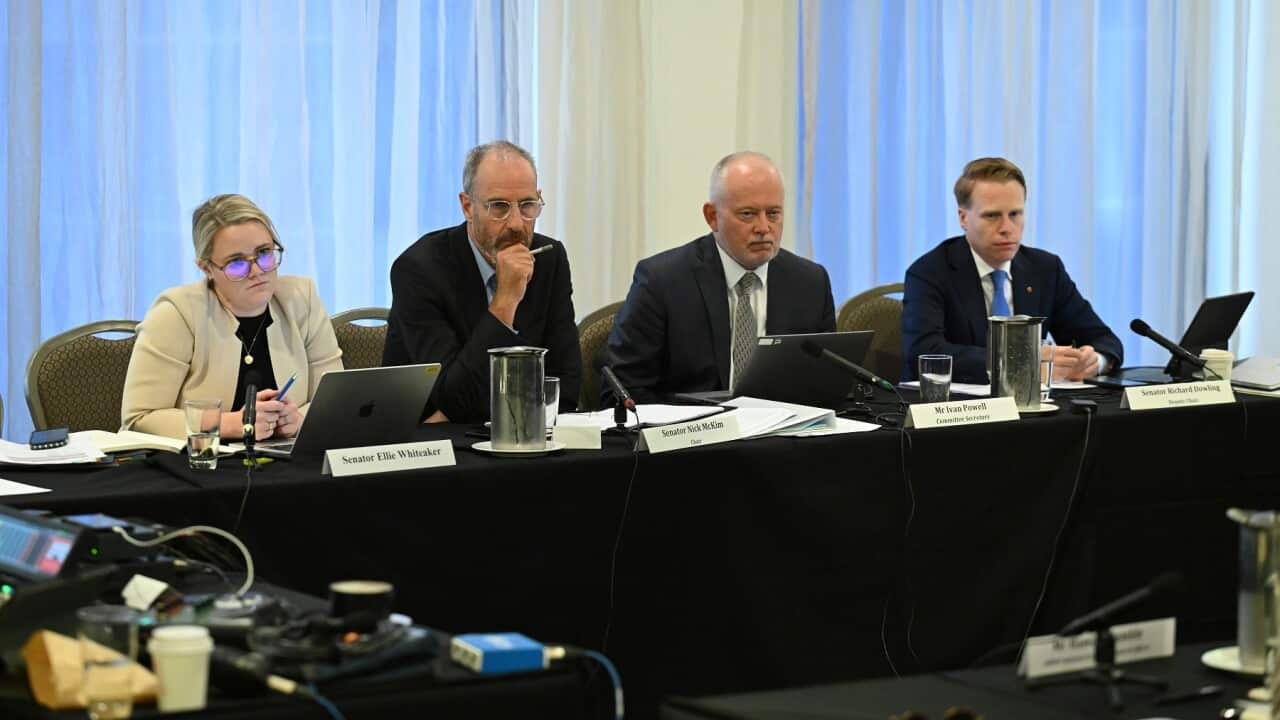Listen to Australian and world news, and follow trending topics with SBS News Podcasts.
TRANSCRIPT
"I don’t think anybody feels safe because, the kidnapping, the bandits everywhere, the killing, everybody is so scared. I don’t think people are sleeping with their eyes closed. If you hear any noise anywhere, you will just wake-up because everywhere is not safe in Nigeria presently."
Fear and anxiety has swept Nigeria after the latest spate of mass abductions have seen over 400 people kidnapped by armed groups in just one week.
These are far from the first mass abductions in the west-African country but the latest of these attacks, involving the kidnapping of hundreds of schoolchildren, is the worst incident in years and has revealed the ongoing threat of armed gangs.
The Christian Association of Nigeria says 303 students were kidnapped from St Mary's Private Catholic Secondary School in Niger state last Friday along with 12 teachers.
Daniel Atori, spokesman for the owners of St Mary’s School, says they still are yet to learn who is responsible for the attack.
"We've not heard of anything. We don't know which group is responsible for this, and I know that the security agencies, the government, are on top of the game, and we're just praying and hoping that the children will be rescued and returned back safely to their parents."
Mr Atori says 50 of the more than 300 kidnapped students were able to escape their captors over the weekend and have now been reunited with their parents.
"Between Friday up until early hours of today, Sunday, 50 of these children escaped. We count it as a sigh of relief for us because the number has reduced."
It's been good news for some parents but others like Njinkonye were sat on the ground near the school, distraught at finding no trace of their missing children.
"I came to the school, I am here searching and looking whether I will see any child that returned, but I have not seen any child."
If the numbers from the kidnapping at St Mary's are confirmed, Friday's attack would be Nigeria's worst mass abduction in five years, when Islamist militant group Boko Haram abducted 344 boys from a boarding school in northern Katsina state in December 2020.
Country Director of Save the Children Nigeria, Duncan Harvey, says the latest violence has caught many off guard.
"It's true that in the past there were a number of similar attacks and abductions carried out on schools, so between 2014 and 2022 there were around 70 attacks on schools in Nigeria. But that trend, the frequency and the number of attacks had really decreased in recent years, the last one of any note was was in Kaduna State in 2024. So yeah, this month's attacks have really taken everyone by surprise."
The attack on St Mary's was one of a series of violent abductions last week, with armed men also storming a predominantly Muslim girls school in northwest Kebbi state and abducting 25 children on Monday.
Also on Monday, another armed gang abducted 64 people, including women and children, from their homes in Zamfara state, which borders Kebbi.
While no group has publicly claimed responsibility for the attacks, the government says perpetrators of a separate church raid on Tuesday last week appear to belong to a gang motivated by ransom money.
A church official says gunmen attacked the Christ Apostolic Church in central Kwara state, killing two people, abducting 38 worshippers and holding them for ransom.
Nigerian President Bola Tinubu has since announced on X that the 38 worshippers as well as the 25 schoolgirls in Kebbi state have now been freed by security forces.
The attacks appear to follow a similar pattern.
Gangs arrive, shoot sporadically to scare people, abduct victims and vanish into nearby forests.
Ikemesit Effiong from the Lagos-based SBM Intelligence consultancy says armed groups view these kidnappings as a reliable money-making venture.
"The fact of the matter remains that there’s just a lot of money to be made in this enterprise. We have seen and noticed a situation where groups that were more ideologically coherent have completely flipped their operations to just making money out of this practice in order to procure more weapons, secure a better, you know, means of living for themselves."
Nigeria also currently faces scrutiny from United States President Donald Trump, who in early November threatened military action over the treatment of Christians in the country.
Mr Effiong says the violence has impacted all Nigerians no matter their background.
"The data shows that it is essentially a free for all, so Christians, Muslims, or those of other religious persuasions, the fact of the matter remains that the confluence of economic, political, social and environmental factors means that for many communities in this country, the overwhelming majority of whom are religiously and ethnically diverse, the preconditions exist for violence to occur."
These latest incidents have taken place more than 10 years after Boko Haram's infamous mass abduction of 276 schoolgirls from the Chibok region, with the United Nations saying 91 of these girls are still held captive or missing.
Co-convener of the Bring Back Our Girls Movement, Aisha Yesufu, says it's a significant political failure which has allowed these mass abductions to continue.
"This is something that we should all have rallied together as a nation and said 'never will anyone touch our children, and we will not go after them.' But unfortunately, both the government and the Nigerian people failed. People decided to make the abduction of Chibok girls a political issue. In the sense that they refused to make demands. Unfortunately, we failed at that, and over the years what it now did was that it emboldened the terrorists to continue to pick up our children."
As a result of the school attacks, all primary and secondary schools in Niger state have been closed, with mass closures across six other states.
Save the Children Nigeria's Duncan Harvey says the attacks have also struck fear into parents, threatening to worsen a pre-existing crisis of school participation across the country.
"Unfortunately, there are millions of children of school age in Nigeria who are not attending school. And the two attacks that have occurred in Kebbi state and Niger. They're going to rock the confidence of parents and children that schools are providing a safe learning environment. So we hope that measures that are taken this month will help to restore that confidence so that children can continue to learn."
President of the Nigerian Association of New South Wales, Olayinka Fareo, says her friends and family in Nigeria are scared to leave the house.
"You're not sure what you're going to wake up to. You're not sure what's happened when you are sleeping. So the unrest is everywhere. When people go out on a regular basis, they're not sure who is out there. So it's just, of course people are worried, people are scared, are anxious."
Zechariah Lanka Marting says he experienced similar violence and what he calls religious persecution at the hands of Islamist groups in Nigeria's central Plateau state before leaving in 2011 to complete his PhD in Sydney.
He says the situation has only worsened since he left his homeland.
"Before I left, it was horrible. I can't count the number of times that I was on the road with my family not knowing where I was running. My church that I used to attend was completely burned down. I've lost relations, I've lost friends, I've lost neighbors, I've lost quite a number of- we've been displaced in severe manners. And my people back at home were crying, 'don't come back'. And truly the situations have deteriorated further."
Ms Fareo says she's hoping the Australian government will support Nigerians abroad and help open pathways for humanitarian visas to Australia.
"We need all the support we can get internationally to see an end to this. We want support from the government to see how on a humanitarian level our community can be supported and of course some of us are here, we feel safe, but we're not safe because we're not even sure who's going to be next tomorrow. Our families are still back there. They say there are no refugees in Nigeria because they need evidence. What more evidence would they want as a government with all of these?"
Activist Aisha Yesufu says the Nigerian government must act swiftly to ensure these attacks do not become a regular occurrence.
"We are all losers at the end of the day if we don't unite, and show that we are using one voice to call out every abduction. It's only a matter of time before the abduction gets to all of us."













